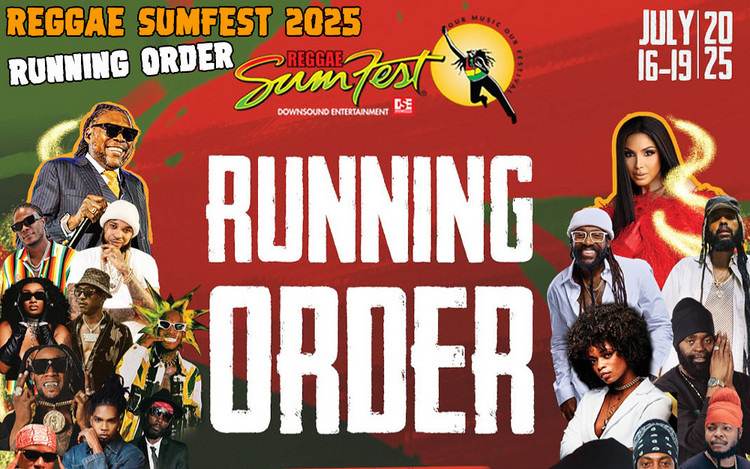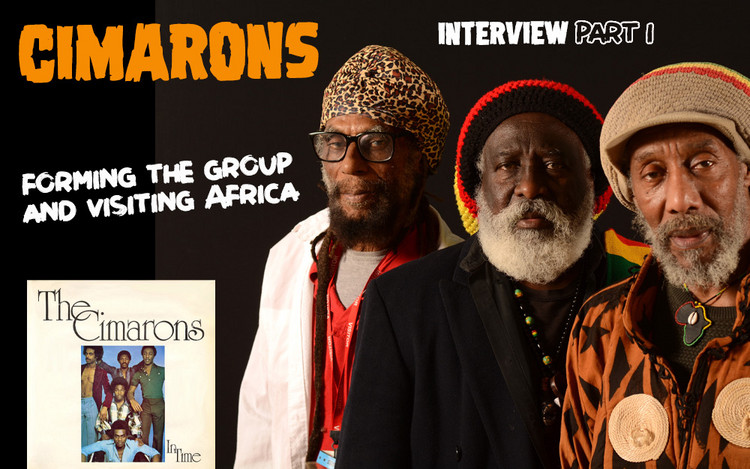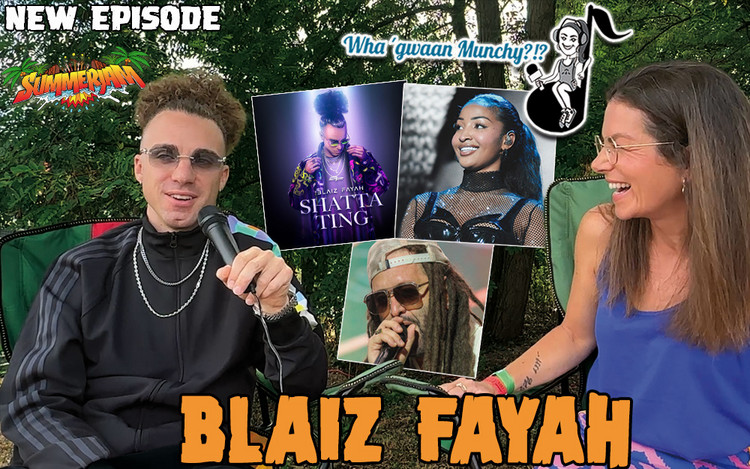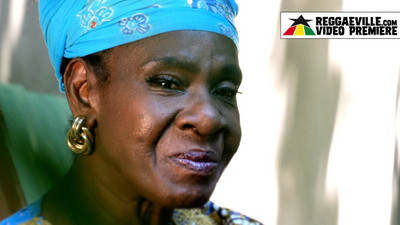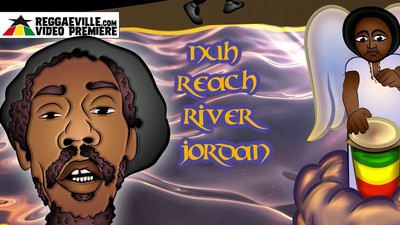Bob Marley & The Wailers ADD
Interview with Aston Barrett Jr. - Carrying on The Wailers Sound
08/20/2020 by Angus Taylor
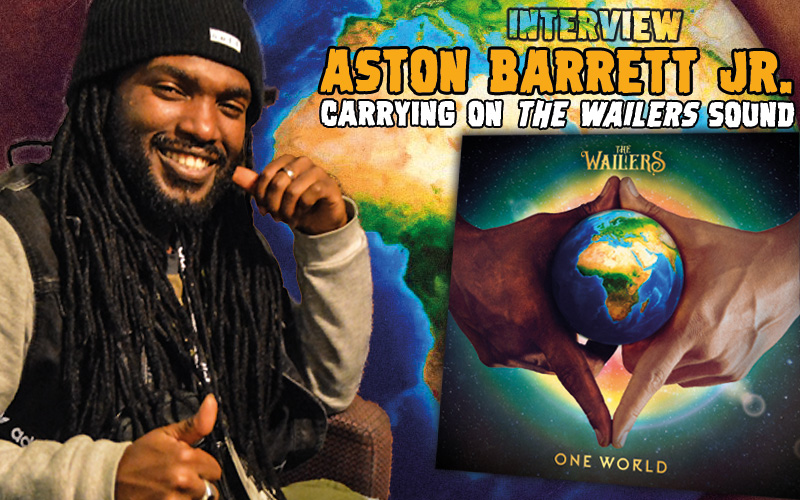
The Wailers release fourth studio album, One World, on August 21st. Their first solo effort in over 25 years, it’s also the first since bassist Aston Family Man Barrett retired from live performance and his drummer son, Aston Jr., took over as bandleader.
The album is produced and cowritten by fellow Miami scene mainstay Emilio Estefan. Released by Sony Music Latin, it’s an ambitious, slickly assembled affair, brim-full of guests and intriguing hybrids of reggae with Cuban and other Afro Latin rhythms.
Features include Emilio’s daughter Emily, French harmonica player Frédéric Yonnet, Brazil’s Carlinhos Brown and Natiruts, and Puerto Rico’s Farruko. Rappers Paul Anthony and Black Dada pass the mic to Jamaican singjays and deejays Jesse Royal, Shaggy and Kush Gad.
There are reassuring cameos from members of the I Threes, Cedella, Skip and old tour-mate Julian Marley – dispelling past legal issues between the Barretts and the Marley family after Bob’s death. Aston Jr., who plays drums, bass and keyboards, sings lead on two songs for the first time. His father’s unique bass tone can be heard on the majority of tracks.
Angus Taylor spoke with Aston Jr., the son of Family Man, nephew of drummer Carlton and grandson of Joe Higgs, about his new album and family legacy. Despite his Maroon ancestry and lineage in Bob’s music, Aston says he’s not a rebel. He’s highly talkative, and extremely polite (in nearly an hour he never swears). He calls people “dude”, goes to Metallica concerts and is enthusiastic about his musical gear.
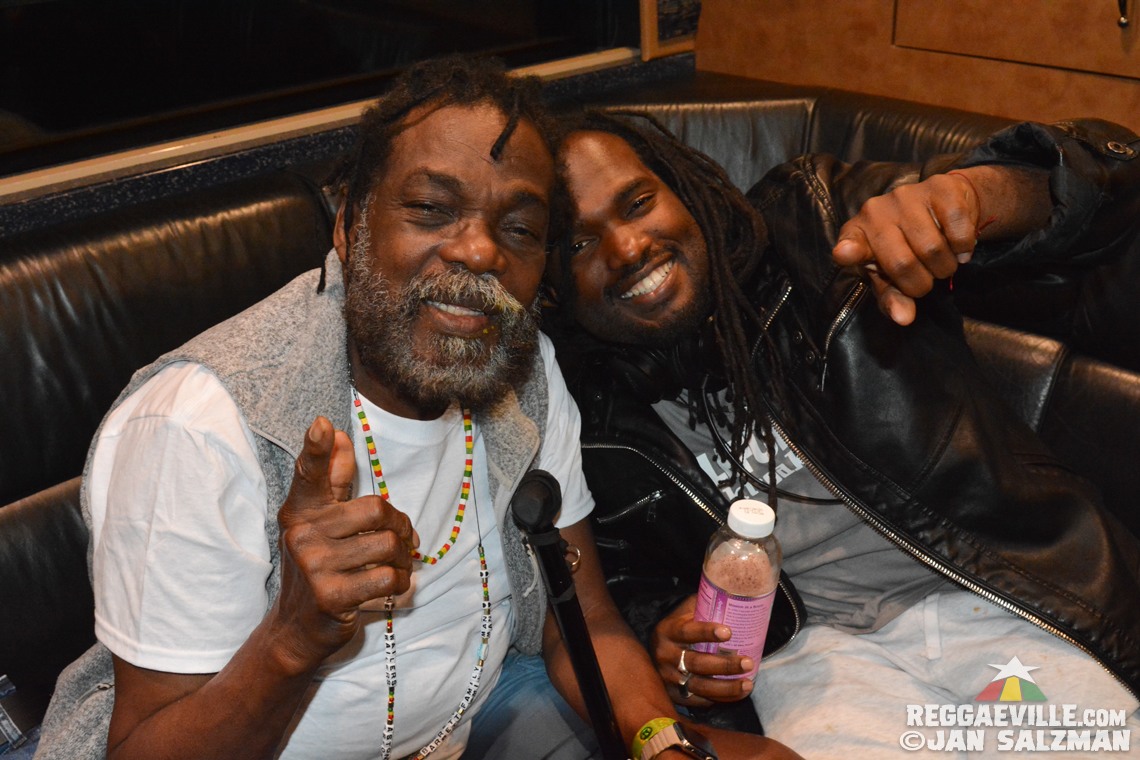
He speaks at great length, often jumping from the original question to adjacent topics. But it’s all interesting, because he’s a living root of the tree that helped reggae to blossom worldwide.
I know Miami hasn't been in lockdown for quite a while but you seem to have spent this period very productively. You have a new album with an enormous number of guests.
We basically finished the musical part before the pandemic started. There were one or two songs we had to finalise. Everything was mastered. That's the thing about working with a great producer like Emilio Estefan. Emilio Estefan is on point. He makes a date for everything. And he still gives you time to do everything. And how we work, we work so fast he was like “Okay, maybe we could make the date earlier!”
Most producers will have the guys that they're producing work on one, and then sit down on them for like two years so you don't know what's going on. I see this guy working with us and three other people at the same time. He's down in Studio C and then he's in Studio A working with people from The Voice and then he's in Studio B working. It's like “Wow! What the heck?” The guy’s up and down the stairs working and he enjoys what he's doing. Then he has to go to meetings. He has other businesses but the music is his real thing. That's what really helped to start him in everything, to my understanding.
The song One World was recorded like two years ago. And we already planned to put it out at this time and we put it out. That's how the Almighty works.
Was that the first song that was recorded? How long did the album project take?
[Lead singer] Josh David Barrett and myself already started doing a Wailers album before with my dad, before he retired. The songs on the album that Josh David and I did were the songs we already started from before. But the other songs that Emilio produced were the newer ones that we did. So One World was the first one and we started to do everything else after.
He brought one of the songs called Destiny. Gloria Estefan's song. She had a wicked album named Destiny that came out back then. Emilio said “Listen to this song. I want to do this song in reggae”. I listened and said “I could do it, you can have it by tomorrow”. He said “What?” I said “These chord arrangements are so unique. They're my kind of chord arrangements I would use in reggae. So I can definitely reggae-fy it. And you know what? I'm going to Wailer-fy it.”
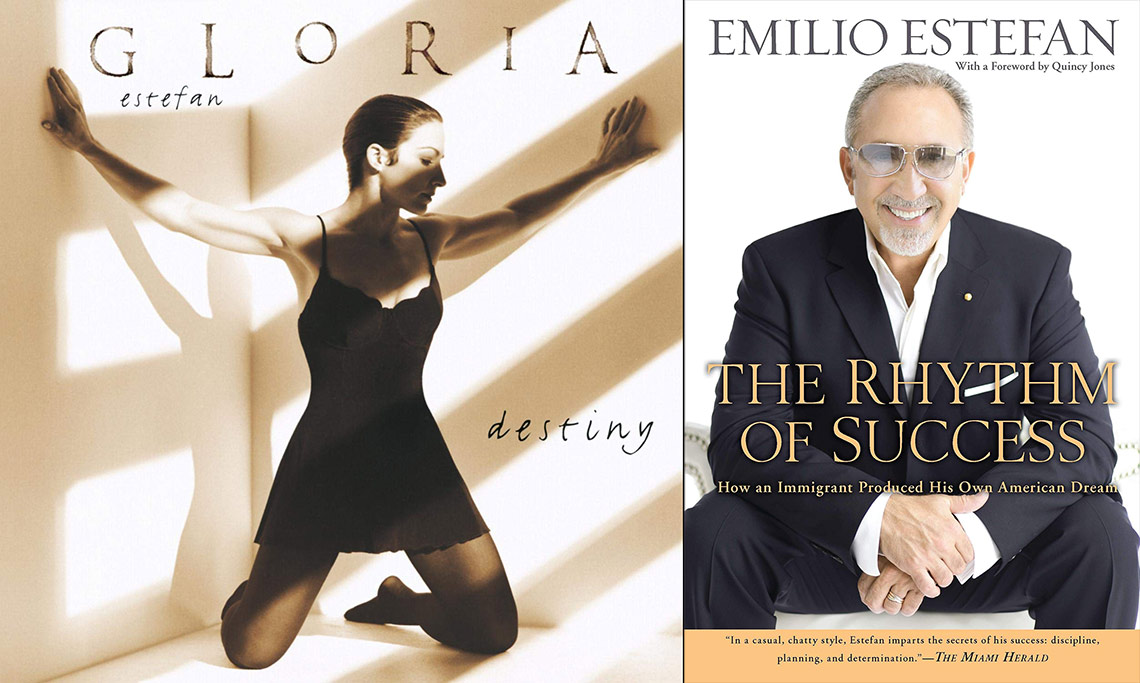
So I went to the studio up in Pompano called Bad Lions Studio. And not only did they send the music, they sent the word sheet. Because you work with musicians all the time but when you work with professional top people that have been in the music industry for so long, you start to understand why and how things could be organised.
I had to sing the demo so I knew where everything was because I'm building it back from scratch. I sent it to them, obviously without the vocals, and they loved it. So when I gave them the hard-drive they took the whole session and I totally forgot that my vocals were on it. Emily Estefan texted saying “Oh my gosh I love your voice!” And I was like “Oh no, you're not supposed to hear that. That's the demo”. Because you know when you're by yourself you're going to sing like you don't care. But if someone is there I'm not going to sing.
I was just going to ask you about your singing on Destiny and Good Time. You're proficient in drums, bass, keyboards, and these tracks demonstrate that you can sing. Why don't you feel more comfortable singing?
Well my grandfather is Joe Higgs. Joe Higgs used to show me a few things when I was younger. I never took it seriously but I always remember - when you're a kid you remember those little small things. Singing is a thing I never really wanted to do because my father used to tell me about a thing called LSD. And it's not the drug. It's called Lead Singer Disease. It's very rare that a lead singer doesn't get it.
I was talking to my friend who used to play with Wailers, we call him Ras Mel. Ras Mel used to play with Wailers and he showed me videos when he used to sing in his band. I said “Look at that - why don't you sing anymore?” And he was like “Because it made me a mean person”. I said “You can't be a mean person!” And he said “That's why”.
Singing to a room of people is a form of emotional manipulation. You are altering the emotions of a large group of people. So if you aren't strong in character you might start trying to manipulate people when you're off the stage.
I guess the difference is if it's your band. But the difference with my dad now, my dad is saying it's his band. And then he gets the singers and the singers start making it seem a certain way. I don't know because I wasn't there and I don't get that from them but you hear from other people, you know? Because I don't want to ask. Stay back and stay in my lane. That's the best thing man. If you stay in your lane that's the best thing you could do. The only time when you come out of your lane is when it's a life and death situation. Where you need to help.
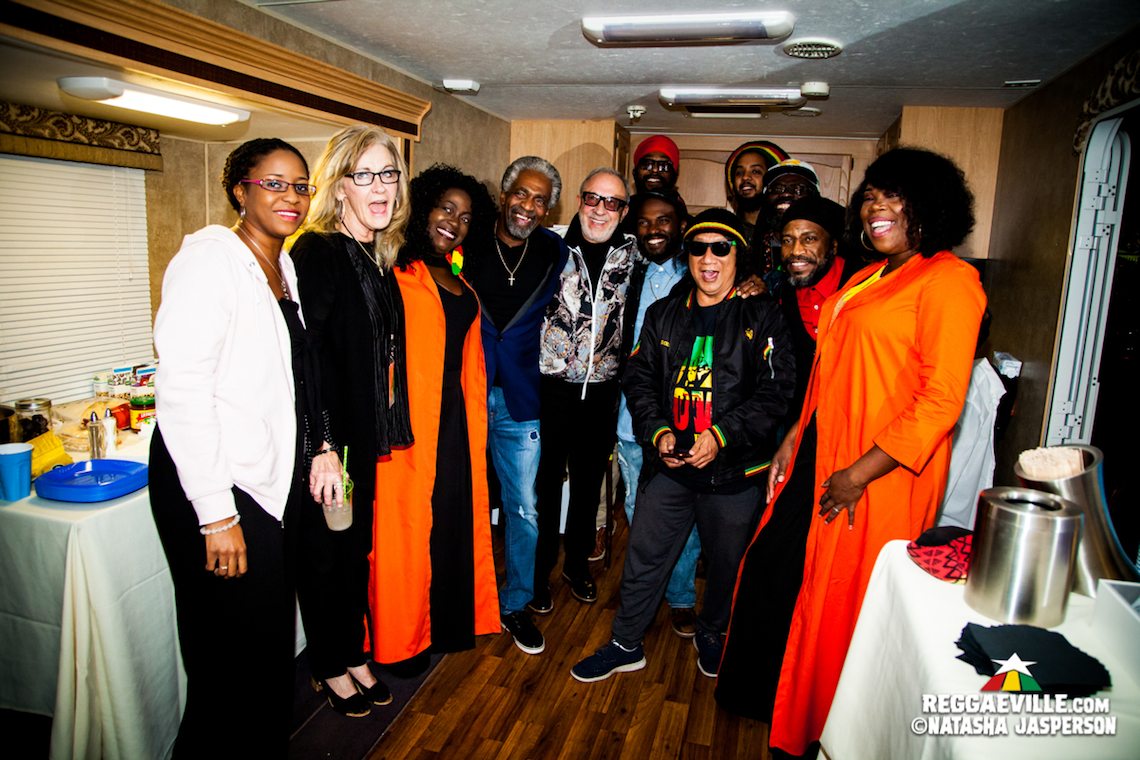
And that's our message. We have a song called Stand Firm Inna Babylon. You know back in the days we used to say “Beat Down Babylon”? And we're saying “Stand Firm” because there's so many good people that are working in the system that are trying to make a difference. They grew up in the system, they used to suffer and they worked hard and they made it. So they are like “I understand the struggles of the people”.
Like me, I wasn't born into a lot of the struggles like how my mum and my dad grew up. They grew up and made a life where their DNA could benefit better. It's supposed to go like that for every generation. But one thing my mum and my dad did? They never let me forget my roots. And that is how I was still able to keep the Wailers sound. If they didn't bring me back to the roots I wouldn't have understood it. So my mum would make me go back to Trenchtown with the family. Stay in Trenchtown for like a week and I would be like “Why am I here? Where is the bathroom?” And then you start to realise how nature is better. It's cleaner. My dad would make me go up in the hills where I used to take a shower in the river. It's like a totally different thing man. You could see why the music could be how it is.
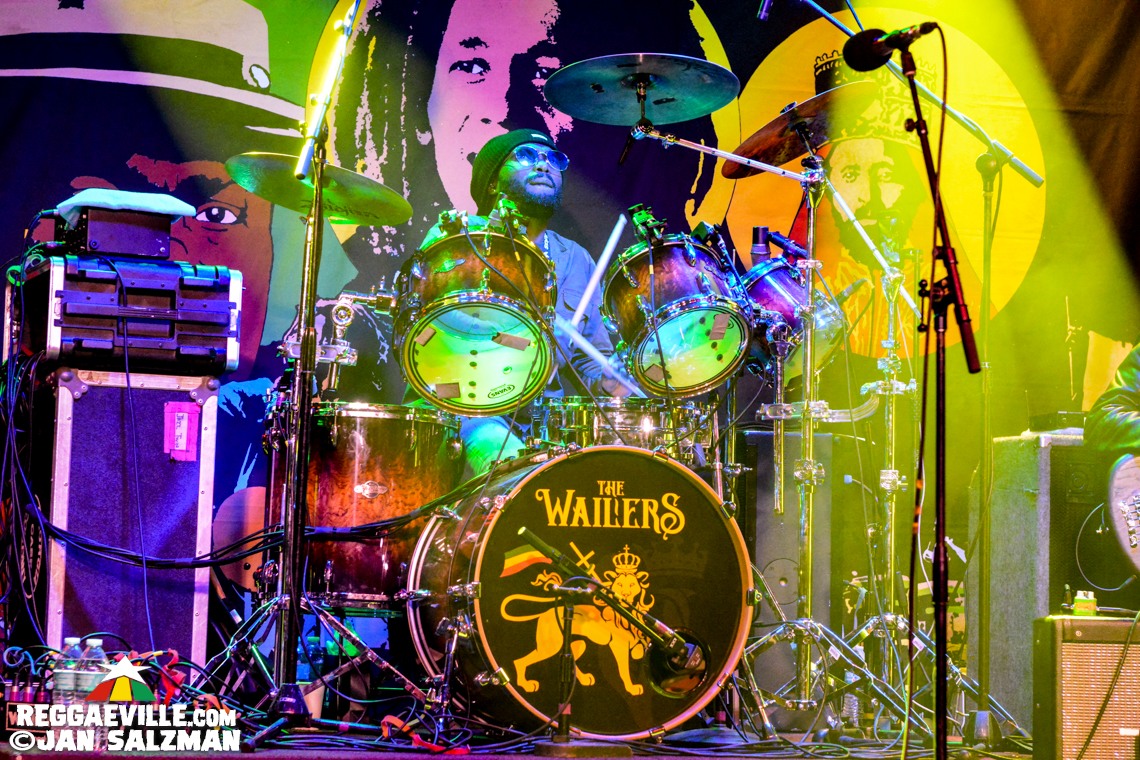
Bob Marley is from 9 Mile. I stayed in 9 Mile up by Bob Marley's house for like three days with Julian Marley and my dad and a few people. Bob's family from his mother's side of the family opened their arms and welcomed me and my father there. Because my father used to be up there all the time. But we slept there and I went out in the morning and the next thing you know they had breakfast. I was like “Dude!” And the food that they're cooking is from the earth. And from the trees. It's not like they're going to a supermarket. There are farmers all over the place. And when Bob came to Trenchtown and saw the struggles, that's how they were able to sing certain songs, you know?
Tell me about the meaning of the song One World, One Prayer.
The song One World, One Prayer means we're talking about every religion. I used to do martial arts and it was a system called Purple Dragon. My teacher was Sensei Delroy Dunkley. His teacher was Professor Don Jacob. He went to the mountains to study in the temples with those guys. He's from Trinidad and he came back and started his own system. That's the system I was from and it taught me discipline and stuff. But he's training with those guys and they believe in a different religion. He has a different religion from them. But they opened their arms to him. That's why in his system you have every religion in his system. All of us, we are one.
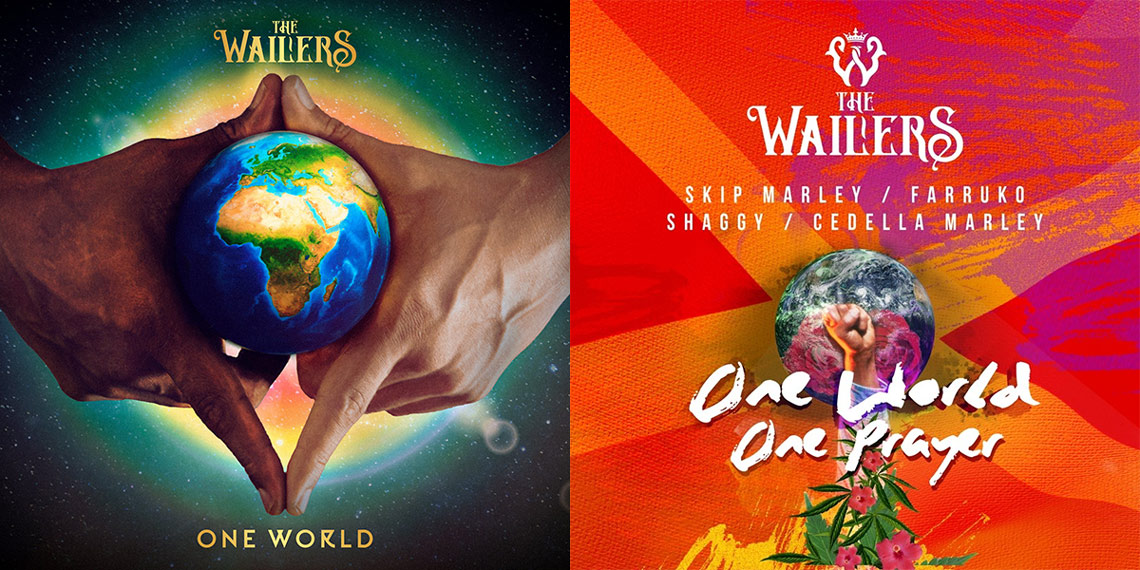
Like in Jamaica we only know one thing which is class. We don't really know so many things. When I came to America that's where I learned about the Holocaust. I learned about all this and was like “Whoa, what happened in the world?” There's some stuff that happened in Jamaica too in the past but I guess I left Jamaica early so I wasn't able to learn those other histories. For the human being, it's very easy to do bad. But it's hard to do a good job all the time. Especially if you do a good job and people don't appreciate you. But when I go into Cockburn Pen, that's called the ghetto in Jamaica?
I've been there.
I have a friend named Gugu. This dude would not have any money but he knows how to build stuff. I went there and he cooked food for me. He climbed the tree and got ackee, he climbed the tree and got breadfruit. It was the best food ever. He's so humble and the amount of tribulation he went through - he never turned that into a negative. He turned it into a positive. And his positive energy brought him more people to surround him. So when people come to Cockburn Pen a lot of people go around him. Because he suffered but never changed. And that showed me like “Wow. I don't think human beings are really supposed to be that way.” I think society, in different ways [changes people] if you're not strong enough.
A lot of destruction now with the children is because they either don't have a father or they don't have a mother or they have a toxic parent relationship. Because everybody in Wailers was different growing up. I was fortunate where I never saw my mother or my father ever get into arguments. Even though they weren't together all the time and they split, my mother used to always say “Respect your father regardless of what he and I are going through”. So I have to give her a lot of credit. My grandmother, my mother's mum she sang Simmer Down and Chances Are with Bob Marley. Her name is Sylvia Richards. She had a song in 1976 called Dearest. So that's my mom's mum and you know Joe Higgs is my grandfather. And then on my dad's side there's Family Man and Carlton. And you know Toots from Toots and the Maytals and my father are cousins?
Toots has his own album coming out around the same time as yours.
Right! And also Tony Rebel. Tony Rebel’s last name is Barrett. So the whole family is different. On my grandmother's side, my father's mother, her last name is Marshall. She is a tribe called the Maroon.
I was about to ask you about that. Tell me about your Maroon heritage.
So if you look at my beard texture, my uncle's moustache and stuff, a lot of Maroons, we get that side from them. We can always tell who has Maroon bloodline. Julian Marley has a drummer named Craig Taylor. As soon as I saw Craig we were like “You got some Maroon blood, ain't it?” The Maroon are very rare people. But they're very warrior.
They rebelled against the slave masters...
I'm not very rebellious though! (laughs)
Let’s talk about the Cuban and Afro Latin influence on the album. Jamaican and Cuban music have a shared history. Dr Carlos Malcolm told me that the mento comes from Jamaican cane cutters going over to Cuba and bringing back instruments inspired by the music of Central and West Africa. The Skatalites covered Mongo Santamaria. You also have Puerto Rican Reggaeton beats on the album and Reggaeton comes from dancehall. As a drummer, how did you and Emilio approach this album rhythmically? There are some interesting mixtures on there.
I'm happy you said Reggaeton came from Dancehall. I've been trying to tell people that for a while. They said “Reggaeton came from reggae” and I said “Not really”. Dancehall is kind of reggae too but I would mostly say Reggaeton came from Dancehall.
When Emilio brought One World and saw how fast I worked, he let me do everything. He'd come in and have a little suggestion here and there but that was it. And when he was working on his stuff for our album he'd ask me saying “If you're not happy we could take this out?” I was like “I would turn that part. I would actually use a minor 7th instead of that major”. They’d try and he'd say “Yes it's brilliant!”
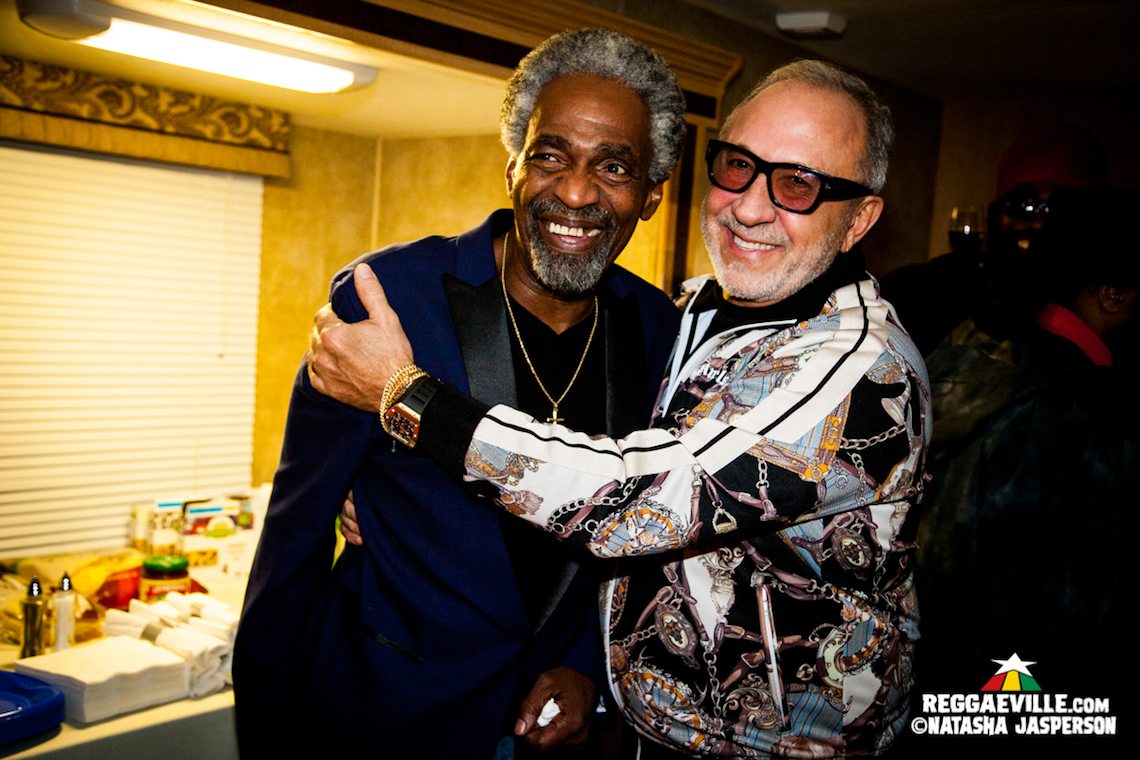
So I started to do the whole album with them. Because Emilio already had so many demos and stuff it would have been a longer thing to have the whole band for this one. And I'm trying to keep the Barrett and Wailers sound. We brought in the band and they came in and did the best that they could and it was amazing.
It's nice to hear your dad playing on the album. How is he since his retirement from live performance?
He's doing good, you know? We're taking good care of him. The other day he was like “I can't wait to go on the road again one of these days. Even if it's for like a week”. I'm like “Yeah that could happen. As soon as this virus thing ends”. That's why you don't see him. Even when we did a little radio show with Skip Marley and Cedella Marley and other artists. He wanted to go and I was going to bring him. But then I thought “No I'm not going to bring you because you mean too much to me. I don't want to put you in a certain situation”.
So when we walk, he'll do his little walk outside in the backyard. But I really keep people away. If anyone comes they have to wear a mask and stay six feet away. Even when they leave I have to use Lysol. I'm not into chemicals but I have to use something to protect my dad. When we come home and have to deal with our father we take a shower and wash our clothes. We're very serious when following the rules.
You have a lot of guests on the album. Marcia Griffiths and Judy Mowatt are on the song Can’t Handle The Truth. Shaggy, Cedella and Skip are on One World, One Prayer. But you’ve also Emilio's daughter Emily, Farruko from Puerto Rico, Carlinhos Brown from Brazil, and Frédéric Yonnet, who has played with Stevie Wonder…
Emilio definitely knows the salsa and the reggaeton part. And he brought that. I thought it was amazing because my father and my uncle, that's what their influence was also from. So my father was excited. I know my uncle would have been excited from hearing from my other uncles tell me how Carlton was. My father said he used to listen to a lot of R&B. And then my other uncle told he used to listen to a lot of samba.
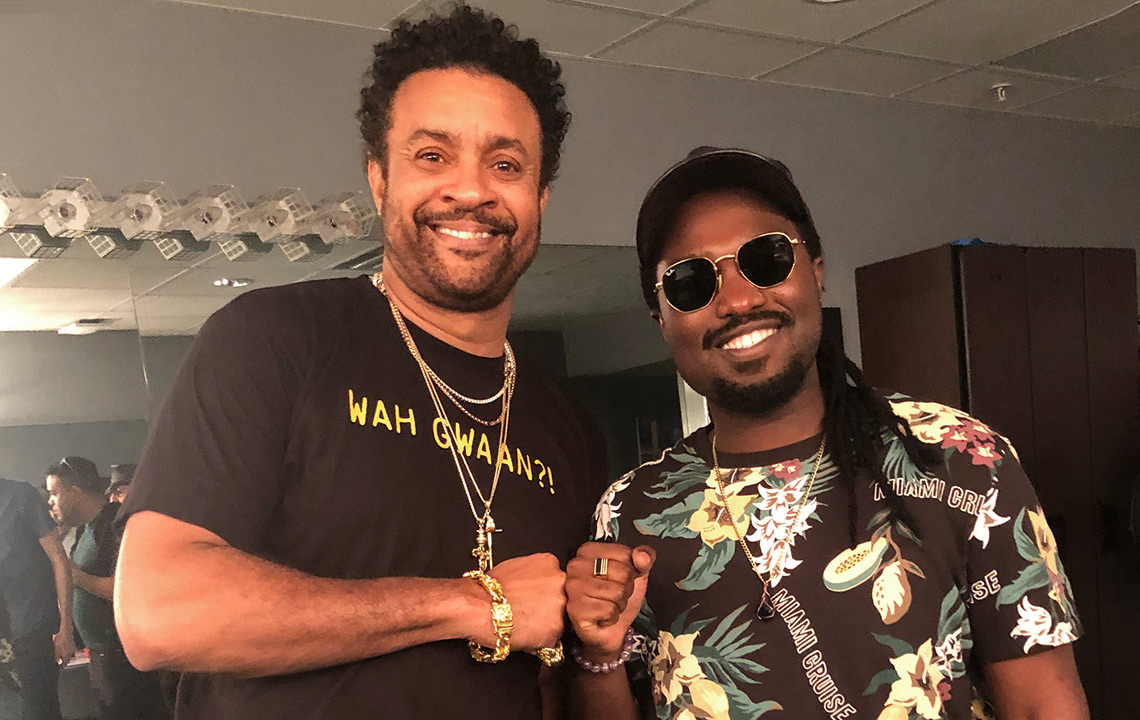
Interesting, because your dad worked with Gilberto Gil.
Yes, and he [Carly] used to listen to a lot of Michael Jackson. He had the Thriller album in his car playing all the time. He had three cassettes. He had Thriller, Rastaman Vibration and Confrontation - which was Lee Scratch Perry and other songs that they did at Hope Road and put them all together. Because you know Bob didn't finish the words. My dad told me they called Bunny and Peter to come in to help to finish the words to the album. Bunny stayed but Peter didn't stay, you know? So most of those horn parts are arranged by Bunny Wailer and my dad. So even Trench Town [the horn line] that's all Bunny Wailer. My dad told me. That album was really well put together.

And Rastaman Vibration - I guess my uncle really enjoyed that album a lot. So I can see why he would have that album in the car. The way that album was mixed. Bob's voice is right here and the drums and bass are like “Bam!” All the albums are great but there's something about Rastaman Vibration - the frequency in the mix from the engineer Alex Askin. He passed away years ago. I never met him but may his soul rest in peace. I'm a huge fan of him.
Bunny Wailer’s not been well recently - have you been in touch with him?
No, we haven't been in touch with him. But we found out what happened and we went online and did a post to let people know what's going on and to pray. If we were in Jamaica definitely we would be there. But we're here in Miami. So we weren't able. I know somebody in Jamaica that can get in touch. Anytime my father wanted to get in touch with Bunny he would call his wife. But his wife as you know is missing. So it's kind of a touchy situation there.
I let my father know everything that's going on. My father has been through a lot. He had three children that passed. The last one that passed was Samantha. Samantha went to Jamaica and got into a car accident. Then two or three years before that it was Nadine, stomach cancer. So my father has been through a lot... because he's very you know... he keeps a lot of things in. Lee Scratch Perry said in one of his interviews “Family Man he has a lot on his head but he doesn't show it”.
Your dad was a huge innovator in terms of using digital drums and building digital rhythms. He was doing it ten years before Sleng Teng.
Yeah, he told me it started at Lee Scratch Perry’s studio. He had the tape machine running in a room, just making his music. He used a drum machine as basically a demo to do everything. It's so funny because it's like what's going on now. They’d do everything on the drum machine and then Carlton would overdub with the drum machine behind the music because that's what their metronome was. So my dad made a few tracks on it. One of the tracks [Chim Cherie/Billy Jean] in the '90s Garnett Silk went on it with a song called Bless Me. So that whole rhythm is my dad. Playing the drums, the bass, everything. And he did three more around that time too.
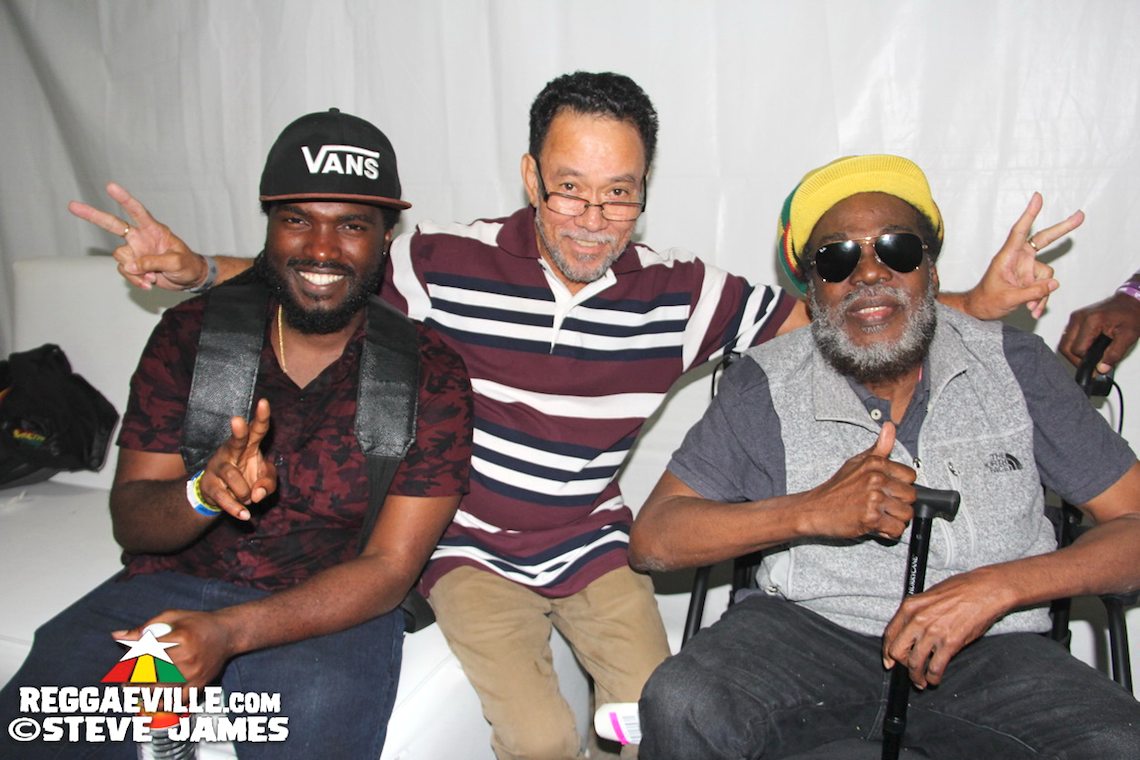
Then when Bunny and Peter left, Bob was like “What am I going to do?” [for the Natty Dread album] He was getting discouraged from what my understanding was. My father said “No, we'll start everything, we have myself and Carlton here”. They couldn't find Wire [Lindo]. So they went in the studio and they did everything with a drum machine.
So Jah Seh, if you listen to it it's a drum machine. The original No Woman No Cry is drum machine, Rebel Music, Bellyful. The reason why those intros were the way they are is because of the way they started them as a ballad. My dad said everything was a ballad. How they made everything before it became reggae. They just turned the ballad bass lines into the reggae. That's how all those bass lines were created. I was like “Wow. You guys are geniuses”.
They wanted to hire Quincy Jones when Bunny and Peter left. But they couldn't get Quincy Jones so what my dad did, he bought all of the latest records, Marvin Gaye, Al Green and the Jacksons. All of them who were hitting at that time. I think my dad was saying it was around Island Studio where they had APIs and stuff. Listening to everything and trying to match everything. And that's how they did everything. And they got Touter who plays keyboards for...
Inner Circle.
Inner Circle, and some other musicians to come in. That's where Al Anderson came. There was another guitar player that played on the album to my understanding but they only had Al Anderson's name on it. Because even No Woman No Cry to my understanding I don't even think that was Al. That was another guitar player. But that's why if you hear how Al played it live it sounded a little different. But honestly I really like Al's version!
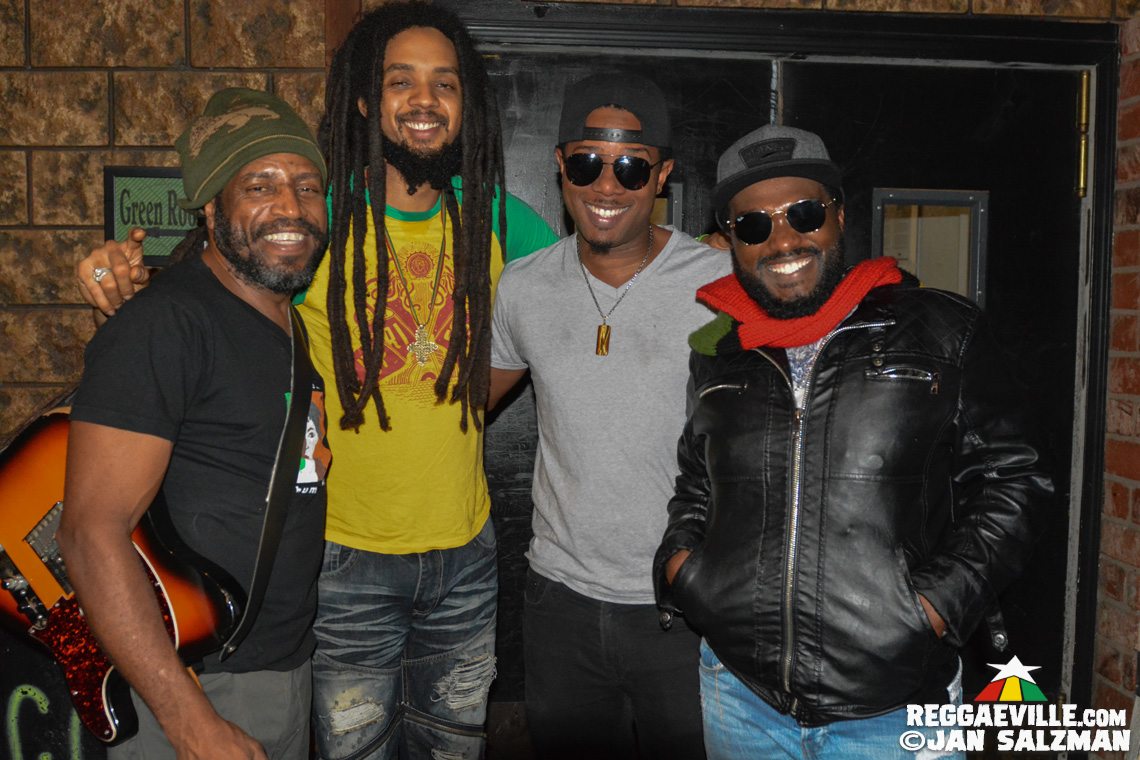
Are you in touch with Al these days? He’s got his own version of Wailers touring and so has Junior Marvin.
Not with him directly. But his manager, sometimes we talk. Because you can have family members but those family members are hard to work with. Business is business but you can't hold grudges on business you know? And that's what we had to learn in life as well. So you just have to move forward. But the doors are always still open.
You’ve played with Julian Marley since you were a kid. It sounds like you’re close to Skip and Cedella. Jesse Royal is very close to the Marley family. So it sounds like after everything, you have very good links generally with the Marley family.
Yeah man, of course. I got my first Grammy certificate from Damian. For the song called The Struggle Discontinues. Building that song was amazing. Damian flew me to LA and I was like “Where are the musicians?” He's like “You're the musicians”. So he played the idea and said “I want you to Wailer-fy it.” I said “Alright I'll Wailer-fy it” and it sounded good. But then he came to me in the drum room and he's like “You know what? I want you to produce this song”. When somebody calls you, just hiring you to do something, you play differently. But if someone wants you to produce something, that's when I'm going to go all out. I mean I'm going to go all out even if somebody calls me but I'm not going to think so deep.
You're not going to put your own personality stamp quite so much on it.
No, because remember the Wailers sound, the Barrett sound is all I have. So I can't just give it out all the time. I'll give it out the best that I can but when you say produce, he wants to see my ability. He wants to see how much I can bring to the table. It's also a challenge but I like that challenge. So I said “Alright no problem D.” Because I call him D.
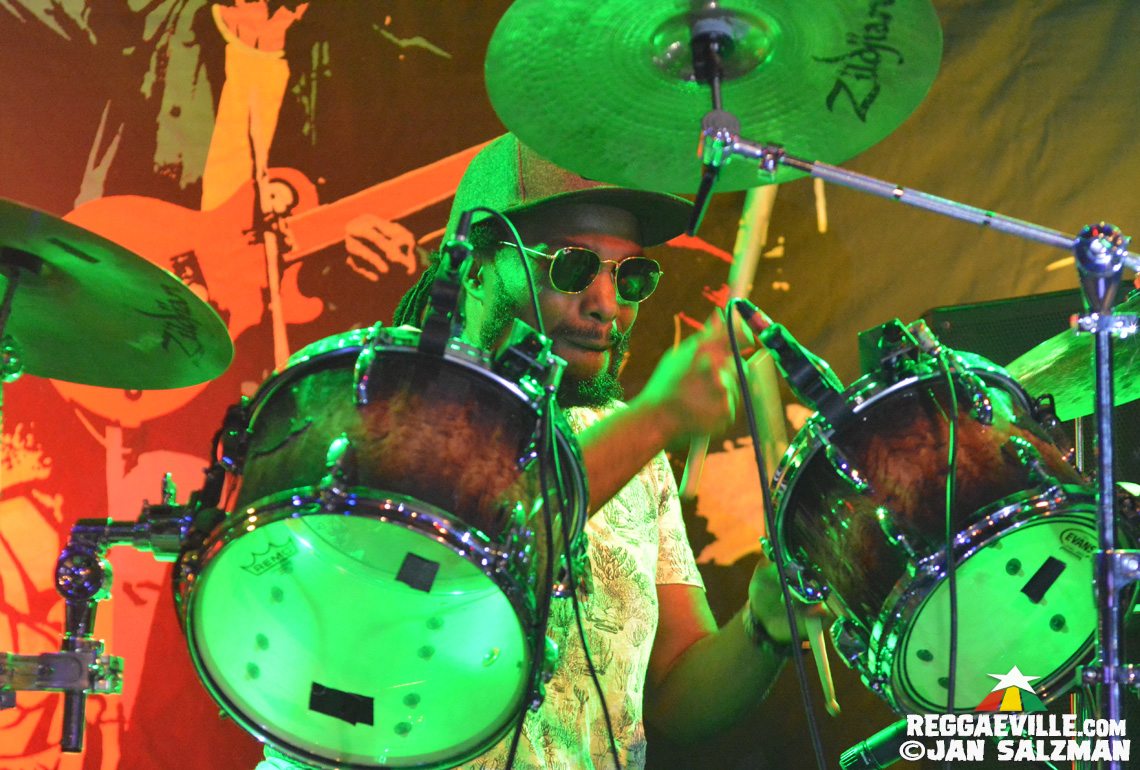
The next day in the studio he gave me the CD to listen to. I listened to it and started dissecting it. Because before, everything was major. But it was saying [that] the struggle continues but you want the struggle to discontinue. But you have to remember that struggle. Minor is not happy. And major is happy. The chords. So if you're telling a story the people need to know what the struggle is. Even if they don't know what the struggle is, they need a frequency. That's how Wailers music is. So I started with a minor key and then in the middle you hear this thing [the bridge]. That's how I started the intro originally. I did the whole arrangement and Damian was like “Oh my gosh. This is a masterpiece. How did you do that?” And his manager was like “Whoa. Now I see why Damian wanted you here”. I was like “I don't know. I'm a humble dude, so ok.”
It's a good feeling to be acknowledged by them but also to get the Grammy as well.
Yes, it's a great feeling. Because we put our hearts into it. Damian said “Alright this part that you do is so special. I wonder if we should put it in the intro. I think you should put it somewhere else in the song.” So I said “Okay” but he wanted to keep the same chords in the intro. So I went to the grand piano and did [the intro]. I changed the bass-line and that's what we do on those parts (sings) “No more trouble”. Because the bass-line is answering everything that's going on. So that's how we do music. It's painting that picture for even someone who doesn't understand it.
What were your memories of Joe Higgs?
Joe Higgs was funny. He was a funny guy, man. My mom told me that when they were younger he was kind of mean. But since they got older they understand why he was that way. He was like “Read the Bible!” “You need to make sure everything is clean!” He was very strict. Like the house has to have no dust. And that's one thing with our culture. Anywhere we go it has to be extremely clean. I can't make music in the studio if I see dust. If I see dust in the studio it bothers me.
I guess it gets into the equipment as well?
Yeah! That too. I don't really like going into studios where you smoke. I've been to studios where they smoke herb. It's fine but my studio I wouldn't do that.
It's funny you say that because I interviewed Clevie from Steely & Clevie. He said Bob and his technician told him he didn't like smoking in the studio because particles get into the equipment. Obviously, this was right towards the end of Bob's career, so he may have been different earlier?
Yeah, because the equipment is his equipment. So when he has to service that it's coming out of his pocket. So it's different. That's what happened to me. We used to smoke in the studio and have herb people in the studio. Then when we had to get the board serviced and when we opened the board the guy was like “Yo look at this!” I'm like “Whoa!” And he said “That's what the smoking does”. And I have all Rupert Neve iron or high-end gears. Since then I'm like “Nope, no smoking in here man”. Not even incense. I'll put the incense outside the door and it can come a little bit into the studio but I wouldn't light it in the studio.
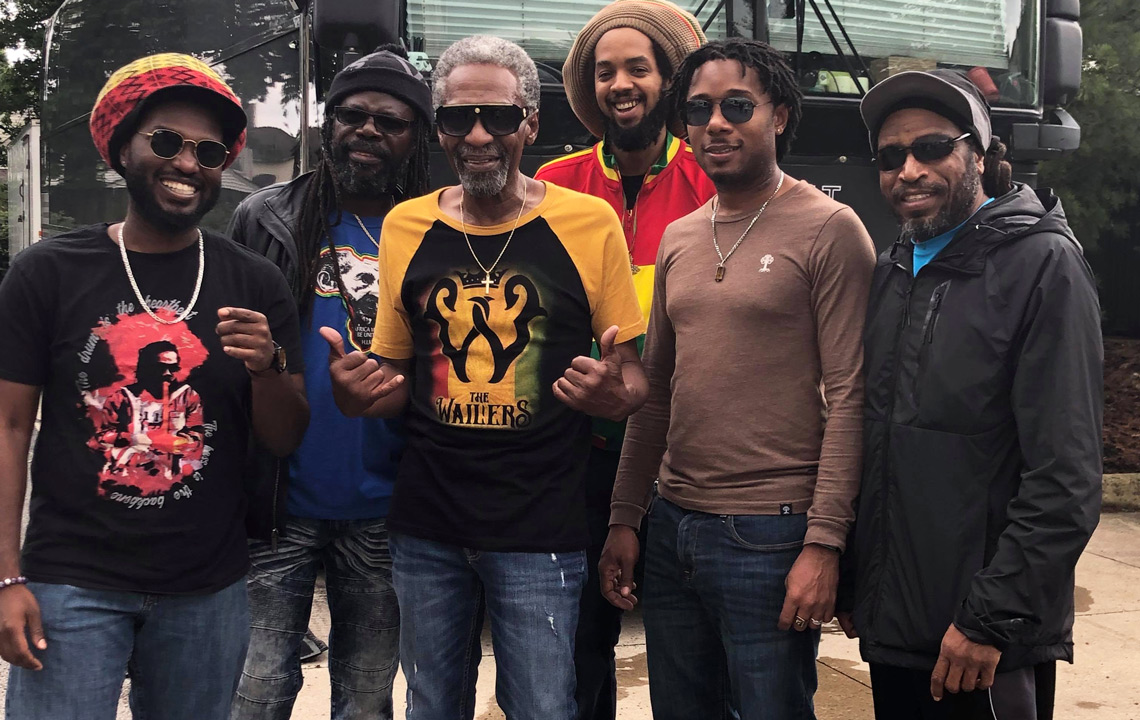
I read another interview, with Bass Magazine, you said you'd been watching the documentary Standing In The Shadows Of Motown.
Yes! Oh my god that was amazing. My daughter's mom was the one who made me watch it. She made me watch that and she made me watch Metallica.
Some Kind of Monster.
Yeah, when I watched that one I was like “I never understood how the guitar was so big and loud but it wasn't bothering my ears”. That's one of the reasons why I liked Al Anderson when he was playing with the Wailers. I was like “This dude is bringing that style to it”. I thought that was awesome. He didn't really have that style in Bob's days. I would say a little bit after Bob then he started to develop that style. But the 80s sound really came in around that time. My father told me there are two ways they could have gone. They could have gone pop or rock. He said they went pop but there were different categories of pop. And he said the way they went wasn't so good and they lost a bit of the roots.
So he had to find back that roots and he got it back around 1999-2001. I think after they did that All Star tribute in Jamaica with Queen Latifah, Eve and Busta Rhymes, Tracy Chapman. When they did that some members of the Wailers came back together. Tyrone [Downie] came from France, because he was living in France, they had Chinna [Smith] and Al. Chinna was playing for Melody Makers. Some of the band from Melody Makers was playing with Wailers. So it was awesome. I think my dad was like “Whoa! The original feel is back!”
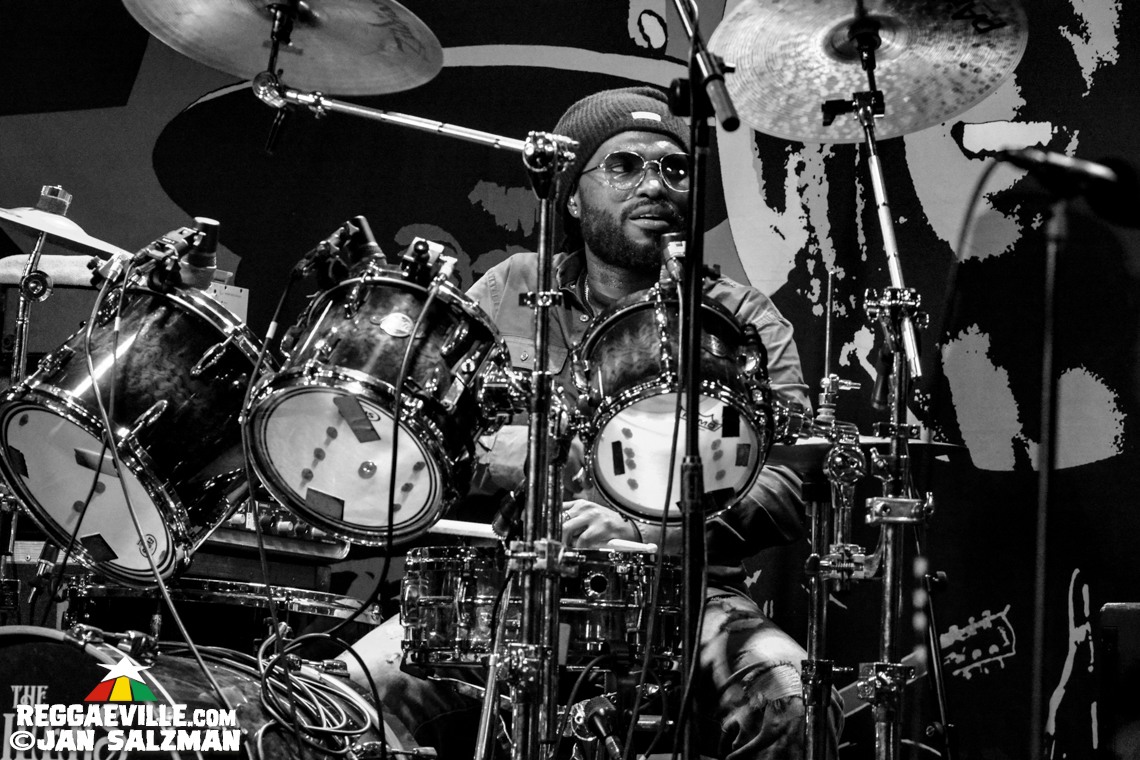
It's funny you mentioned Metallica because you worked on the Unbreakable album with Alborosie where he did over a Metallica song.
He said that song was inspired by me. He saw me online where I went to a Metallica concert. With my daughter's mom. She was like “Yo, Metallica's going to play in New Jersey”. I wasn't on tour so we flew to New Jersey and stayed for a while with her parents. And then we went to her friend's house, who is a Metallica fan and went to the concert. The first band I was like “Damn this band is wicked”. I don't even remember the name of the band. And the second band I was like “Whoa, this is the wickedest sound I've ever heard. Whoever's going to mix Metallica, they'd better come good because I'm already blown out by the second band”.
When Metallica came I was like “Yo!” I called my friend Josh. He's the CEO of Rupert Neve. I'm like “Dude I saw them using one of your equipment on that show. What is that?” I forgot what it's called but it was the feedback reduction stuff so they could get more headroom before feedback. I was like “Yo I want one!” And he was like “Well you know we are actually making a 500 series”. So on tour we got the 500 series.
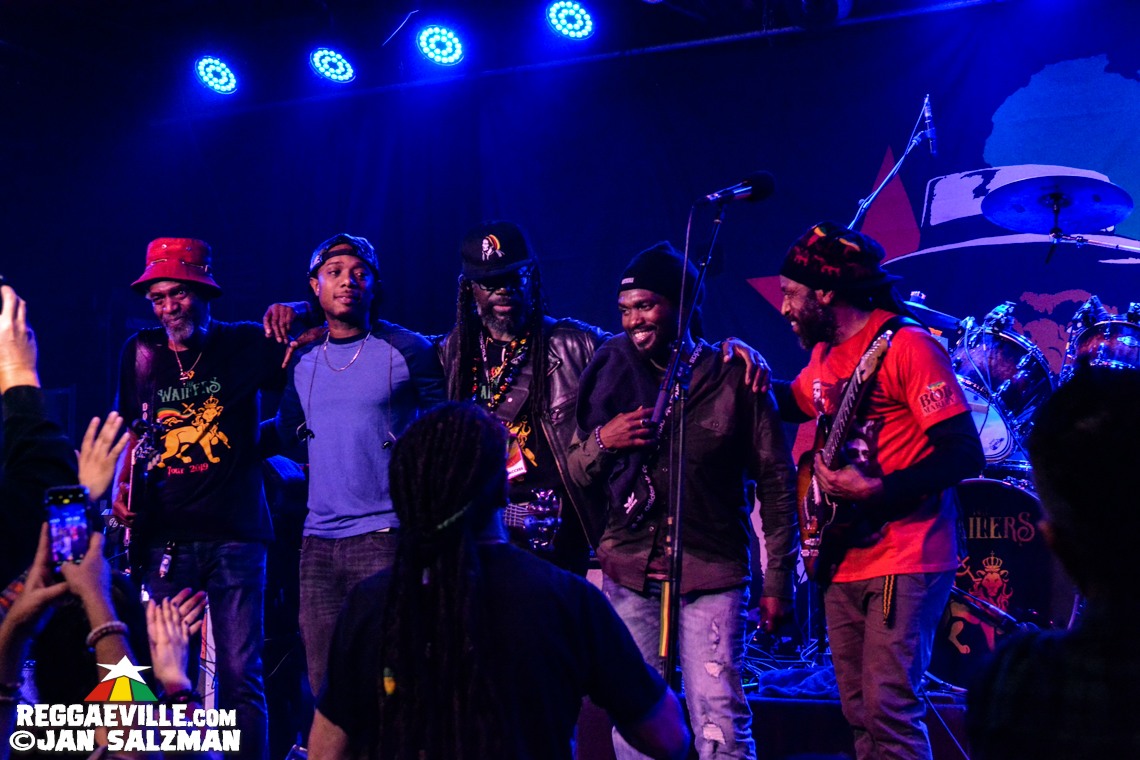
Let me tell you the secret of what we use on tour. We have Rupert Neve stuff on tour. We have all Rupert Neve DI's. The keyboards and the bass are going through Rupert Neve DI's. Then my kick and my snare drum are going through a 511 Mic Preamp. And then the vocals are going through the dual Mic Pre. And then out front here I've got the 551 EQs two of them - so we are stereo. And then we have two of the noise reduction. Because we hate the sound of digital boards. I don't care how good it is. It doesn't work good for our sound. It's not that we hate it. We love that technology is moving because you have to move with technology. But Rupert Neve moves with the technology but still has the analogue. That's why I love them. Plus that Silk button. Oof!
To bring the previous two questions together, Robbie Shakespeare who's a fan of rock music as well, recently named your dad and James Jamerson from Motown in his Rolling Stone list of favourite bass players.
Uncle Robbie is the best. I've done about 15 rhythms with him, drum and bass. And we did a few tracks with my dad. Every time my dad tells me stories about Robbie. Robbie told me “Your dad saved my life. If it wasn't for your dad I wouldn't have been here today”. My dad used to hide Robbie from the police. And he said “Hey I like how you are man. You need to do music. And stay out of trouble”. So he put Robbie into music and kept him out of trouble and that's how Robbie is today. Robbie told me “Aston, I'm here for you anytime”. I said “Thank you Uncle”.
What was it like taking over being the leader of the band from your perspective?
Honestly it was different. It was challenging because the name Wailers, what it represents and what it means, is so powerful and so strong. It means a lot to us. And especially me having the name, I want to make sure we don't use the name in vain. Many people come and say “Let's do a Wailers this or a Wailers that” and I say “No, no, no. We don't want to put Wailers name on any brands just so you can sell it”. I say “If your brand has no definition of art we need proof of it helping someone”. Working with us now, they see eye to eye with what Wailers represents. So they know that we can't get into certain things because Wailers can't be into too much politics. The only thing we're into is truth and rights.
I used to run away and I used to say “I'm going to just work with other people”. So I started touring with Lauryn Hill and that's where I actually learned the touring business and how touring is really supposed to be. Because touring with Lauryn Hill, you're working on a high level. Professionalism.
I remember the first day I had to take over the band when I heard my dad got sick. I was still running away and Owen “Dreadie” Reid who is the bass player now was saying “No, you can't run away”. My dad said to me “You're going to have to run it”. I said “No, I don't want to run it”.
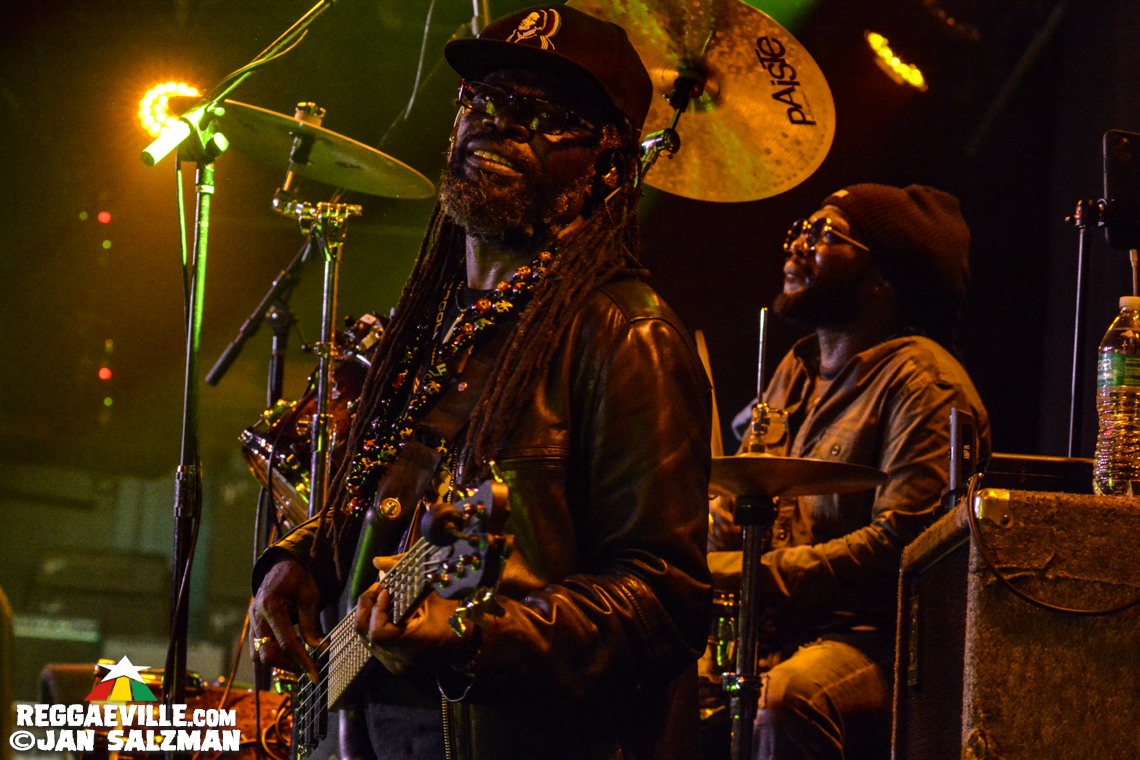
When I'm working with people I stay in my lane. We were touring in Brazil with Julian Marley and the band for two years. We did 2015 and we did 2016. When we did that tour my father was the one who organised it. Everything we did my father told me what to do and I just did it. Because he's my king. He's my father, you know?
And I think it was a good thing bringing some of the original guys together [for the Wailers Reunited 2016 tour]. We brought back some of the members that played with Bob. Even Earl Wire Lindo before he passed, he was able to tour with us. He did three weeks with us and I learned so much from him. Before my father retired he was able to feel back that vibe. So he feels fulfilled and I remember he was so happy in the last show, you know?
We went through a lot of ups and downs to make it to where we reach. And we finally reached a certain place. But we never gave up because every time we felt to give up so many people came from the audience to us. We had a guy who said he was going to commit suicide and we saved him. When he said that to me I really noticed that we can't stop doing what we're doing. We have to continue. And since God gave me the gift to learn the Barrett sound, why am I going to just not use it?
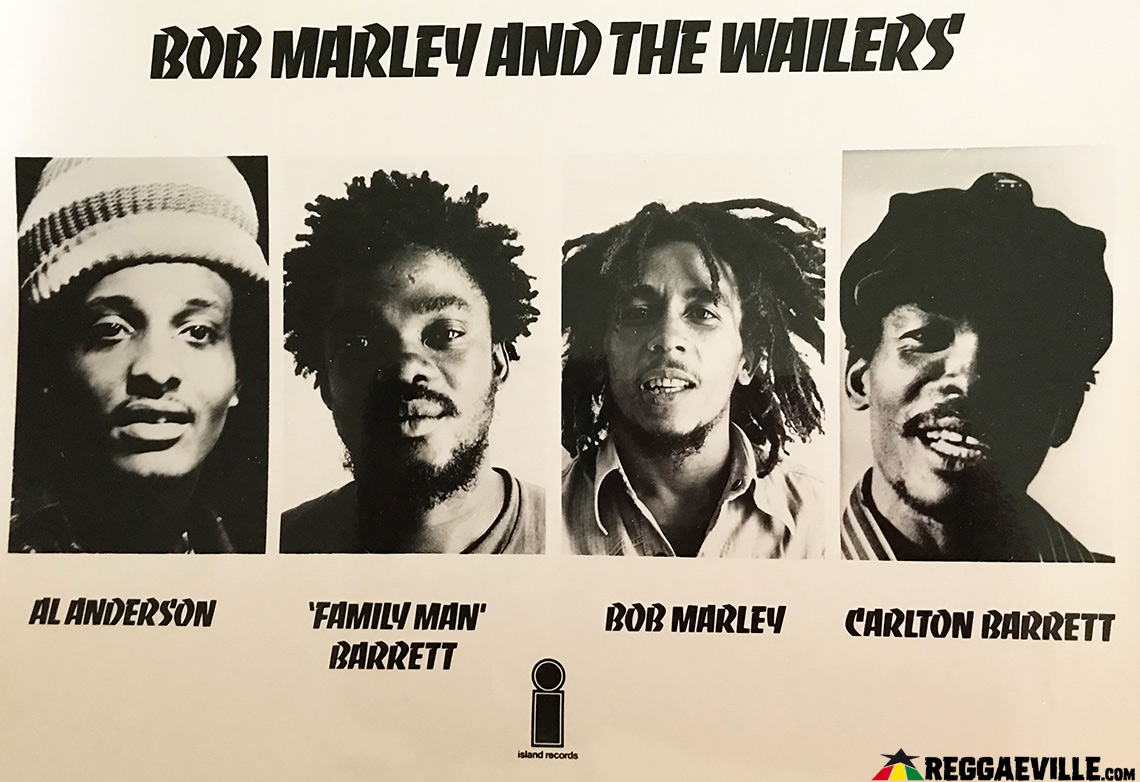
I want to do my own thing but a lot of children of legends go out and say “I want you guys to accept me for who I am”. But I also believe that “Many are called, few are chosen”. It doesn't matter if you're a bloodline you might not still be chosen to have a certain gift. I see the struggles of my father and my uncle they went through to reach the levels they reached with Bob. They went through those struggles and reached so far and I see that people need it. And the sound was given to me. I said “I'm going to do it. I'm still going to do my own thing but I'm still going to keep Wailers alive forever”.
Bob Marley and the Wailers were on Island Records with Chris Blackwell. Esther Anderson helped out a lot. She was also a guide for me. Esther Anderson used to say “Aston, you need to make sure you sing some of your songs. Write songs and sing. Don't make everybody write your songs!” I'm like “But I'm not a songwriter.” “Then you get songwriters and you collaborate on the idea”. She was very strict. If I don't answer on time she'll block me! She's Esther Anderson and she was in that movie called A Warm December in the 60s. She's very strict but she helped to show me a lot of stuff in the business world. So I really give thanks.
And linking with Emilio helps put it where we needed it to go to spread that message again. That's what we have now. We have the company Sony and we have Emilio as our producer. So we feel really good and grateful and my father was very excited. He said “Have an open mind. The first album is going to go a certain way but just have an open mind.”
[Aston Barrett Jr. photo used in interview graphic by Jan Salzman]




